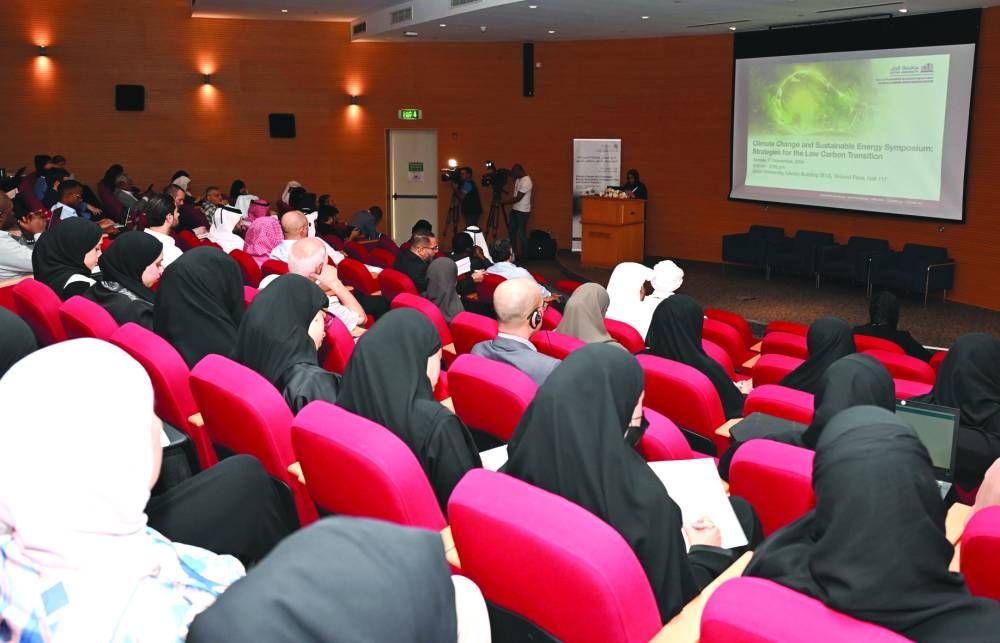An international symposium on 'Climate Change and Sustainable Energy: Strategies for Low-Carbon Transition,' organised by the Social and Economic Survey Research Institute (Sesri) at Qatar University (QU) brought together experts, researchers, and policymakers to address pressing climate challenges and explore innovative pathways toward sustainable energy solutions.
The event took place against the backdrop of the 29th session of the Conference of the Parties to the United Nations Framework Convention on Climate Change (COP29), held in Baku, Azerbaijan, under the theme 'In Solidarity for a Green World.' The timing underscored the critical need for collaborative efforts to address the far-reaching impacts of climate change.
In his opening remarks, Prof Aiman Erbad, vice president of Research and Graduate Studies at QU, emphasised the alignment of the event with Qatar's National Vision (QNV) 2030 and the broader Gulf Cooperation Council (GCC) commitment to climate action.
He highlighted ongoing initiatives across the region to mitigate greenhouse gas emissions, promote economic diversification, and integrate sustainability into national development strategies. “QU has made climate change a top priority, embedding it across research, education, and training initiatives,” he noted.
Engineer Abdullah Abdo Mohamed Salih al-Odani emphasised the critical nature of climate change as one of humanity’s most significant challenges. He outlined the Ministry of Municipality’s efforts in promoting eco-friendly urban planning, adopting green technologies, and supporting sustainable agricultural practices, all aligned with QNV 2030.
Prof Kaltham al-Ghanim, director of Sesri, underscored the symposium’s role as a platform for meaningful dialogue among experts, researchers, and policymakers. She highlighted the urgency of developing renewable energy strategies to ensure the sustainability of natural resources, safeguard human and environmental health, and create evidence-based policies to address emerging challenges.
Prof al-Ghanim also announced that the next symposium will focus on 'Climate Change and the Environment: The Role of Technology in Sustainable Food Security.' Dr Sana Abosen, associate researcher at Sesri, provided an overview of the symposium's objectives and structure.
The symposium featured three key sessions addressing critical aspects of climate change and sustainable energy. The first session focused on energy efficiency and the role of behavioral insights in adopting low-carbon technologies. The second session explored national strategies for transitioning to renewable energy and reducing dependence on fossil fuels. The final session highlighted decarbonisation strategies and shared experiences from GCC countries, emphasising collaboration and practical approaches to energy efficiency and carbon reduction.

